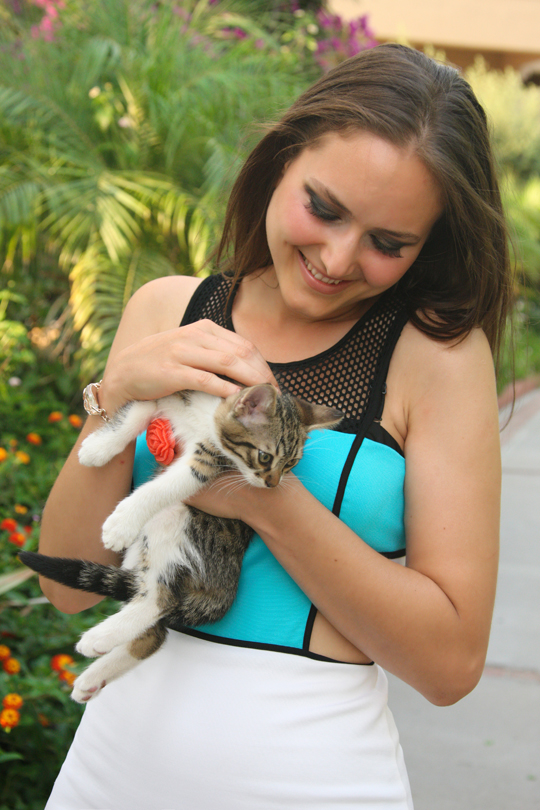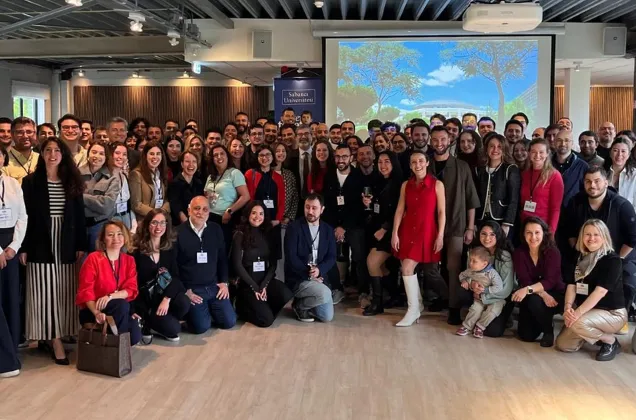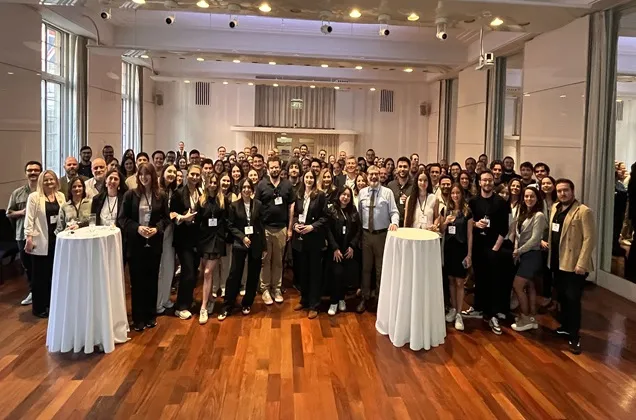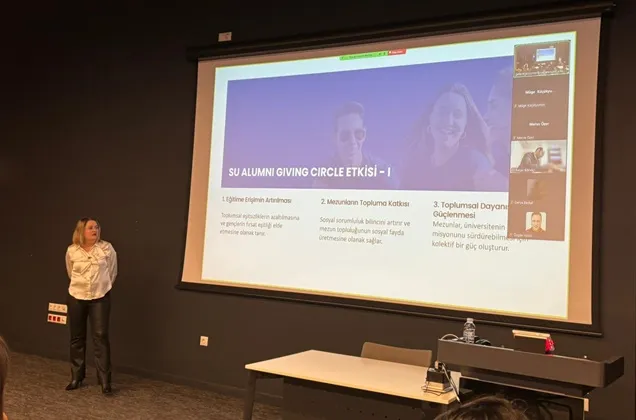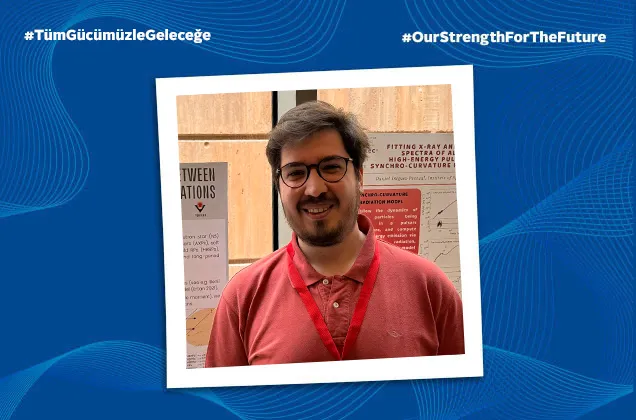25/11/2013
Melis Bilen is a 2008 graduate of the Faculty of Engineering and Natural Sciences’ Manufacturing Systems Engineering program who has made a name for herself in the music scene. She recently submitted songs for Switzerland in the Eurovision Song Contest. We spoke to Melis about what it’s like to be a musician in Turkey, and her Eurovision journey.

We have been hearing about you in the music scene for years. What have you been doing recently?
I published 6 promo albums so far. I have 120 or so songs on the internet. I don’t have a studio contract. I don’t sell my albums. I give them out during my performances. I perform at events like company launches, openings, festivals and conferences. I also compose and perform product, launch event and radio jingles.
We were proud to hear that you are one of the candidates to represent Switzerland in the Eurovision Song Contest. Can you tell us more?
Switzerland announced that foreign musicians were welcome to submit songs for representing the country in Eurovision. I submitted five songs. This was widely covered by the Swiss press. Switzerland’s latest Eurovision win was 25 years ago with the song of another Turkish composer (Atilla Şereftuğ) that was performed by Celine Dion. They had no wins after that, and they were unable to advance to the finals for the last two years; I think that is why they chose to do this, and it makes sense.

Why did you submit five songs?
To appeal to different musical styles. I made five contemporary songs in Electronic RnB, Dubstep, Pop-rock, Latin-pop and RnB-hiphop. These are upbeat, catchy songs that are appropriate to the Eurovision sound and are three minutes each, because that is how long Eurovision songs must be. So there are alternatives for a variety of styles.
What will be next?
Nine finalists were chosen with online voting until November 18. The finalists will perform before a jury in Switzerland on November 30.
Can you name a song that is the most special for you so we can post it here?
Many of my songs are very special because all have a story behind them.
But if I were to name one, it would be this live, one-shot acoustic recording with a single instrument. This songs fills me with peace. I hope you feel the same way.
What would be your advice for fellow Sabancı students whose paths would cross with music?
This is a very difficult and complex question. I wish there was a reasonably convenient way to do this in Turkey.
I will begin with the unpleasant truth, and then give some advice.
Music isn’t easy in Turkey. Most frequently, you need to take a few demo recordings to studios to see if they are interested, and they are mostly reluctant to invest in young musicians because of financial difficulties. They will likely reject you, or not see you at all. Or they could propose a deal where you pay for your album and videos, and if the album “catches on” as they say, you will be given a share of the profits. There is no catching on. You either have to pay a lot of money or know a lot of people to have your videos played on a number of TV stations.
You could make the best song in the world, but if it isn’t played on TV 50 times a day to hammer it into your head, that song is dead. Even if people like a song, they download it for free instead of buying an album. Performers make money not by selling albums or paid songs, but by stage performances. In order to get a performing contract, you need to have made a name for yourself. That means you need to have a good media agent who can promote you through the media, or you need to convince your studio to use their media connections for you, if they have any. Some press agents ask for a lot of money, and then fail to put you on TV shows that they promised. Producers prefer to milk the most out of singers who are already known rather than to invest in unknown people. Those people –or people who pay a lot of money for it– get to appear on TV shows and have their videos played. Producers make more money this way. And you as an enthusiastic and talented singer wait forever for your debut.

Besides, nothing other than the popular has an audience in Turkey, which is the bitter truth. Even the greatest song will fail to catch on if not made famous in the press and played over and over on music stations. On the other hand, the cheesiest tune will get stuck in people’s minds as it is played virtually everywhere you go, and then it becomes a hit. Being a hit or a flop in Turkey has nothing to do with the quality of the song, and everything to do with its promotion.
My advice is basically to do this job abroad. It will not be any easier, but at least they will not drag you down there; they will give talent a chance. If you are seeking to do it here, you will need to create your own audience. You must be willing to pay for your songs and videos yourself, share your creations with your followers, and try to secure contracts in the future. This is a long and difficult road. But it is a clean one.
So if you are going to start the music business, I wish you good luck and godspeed!
